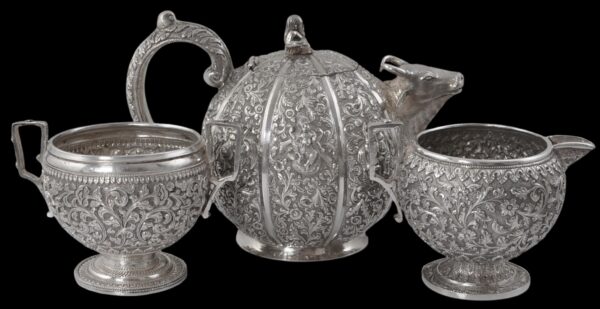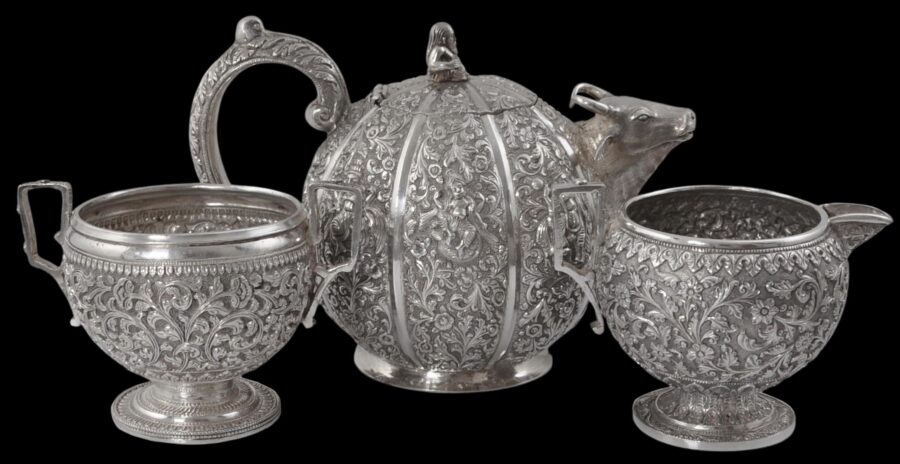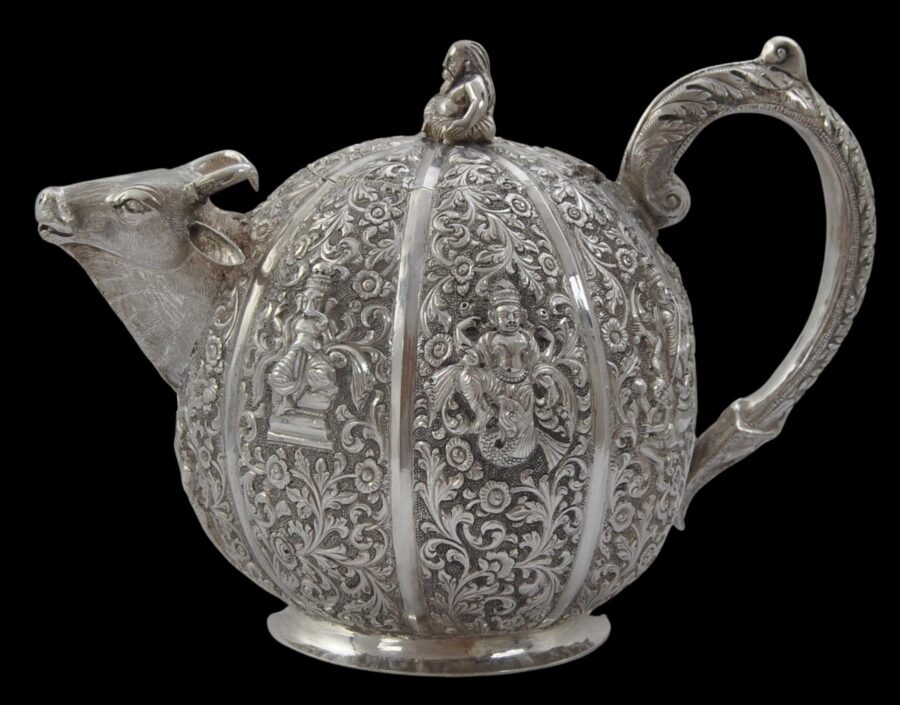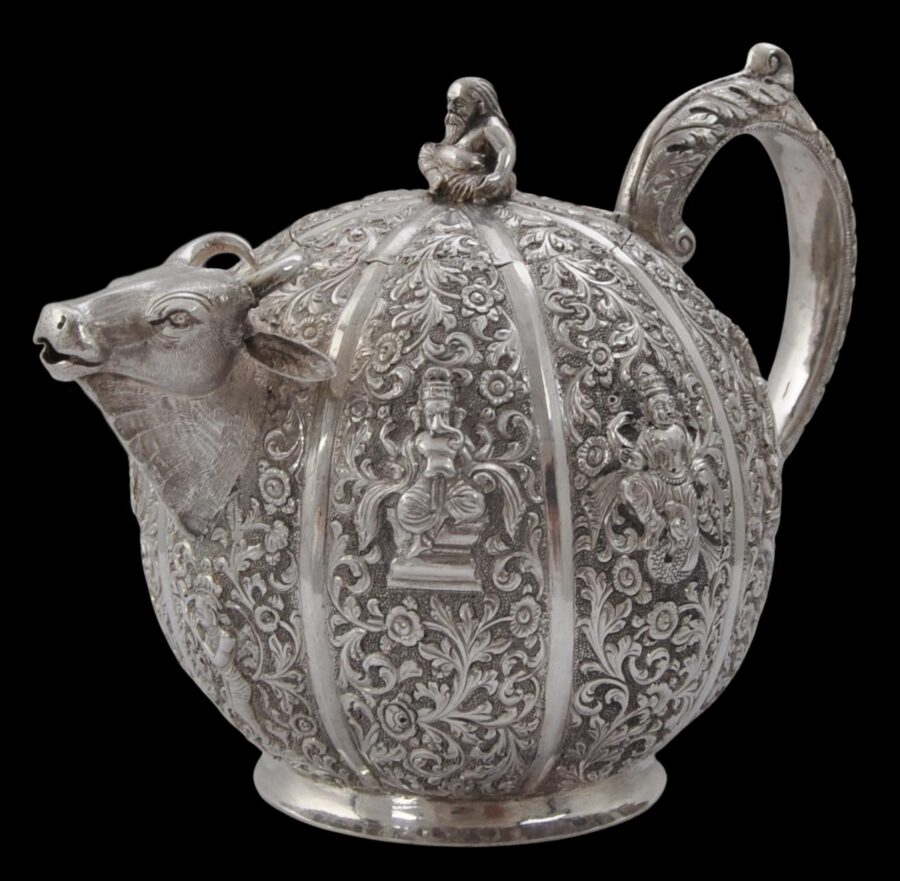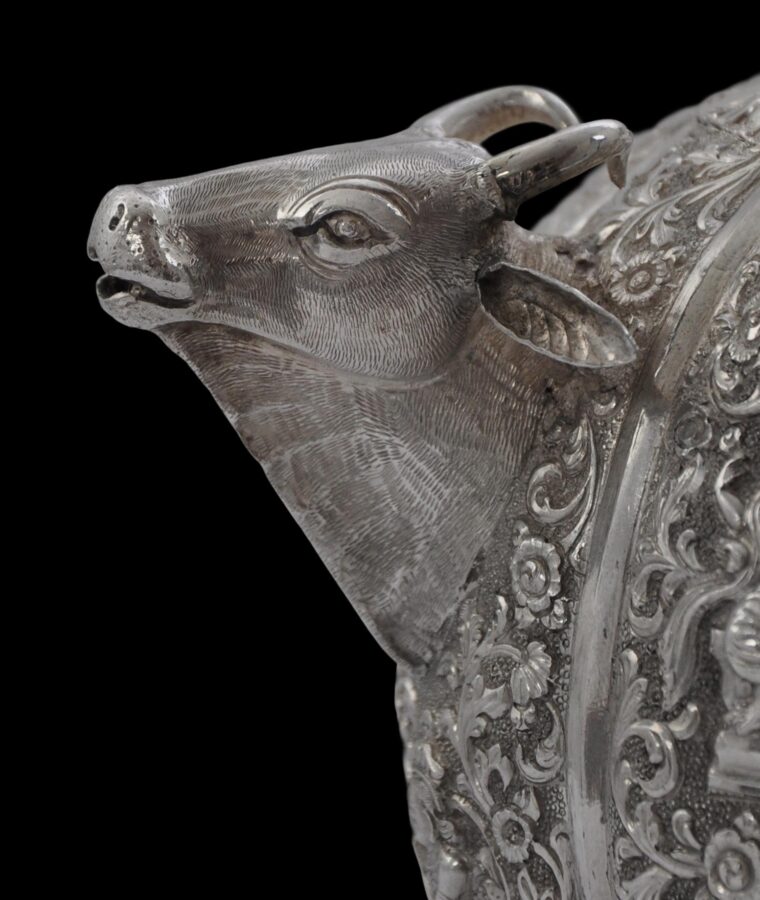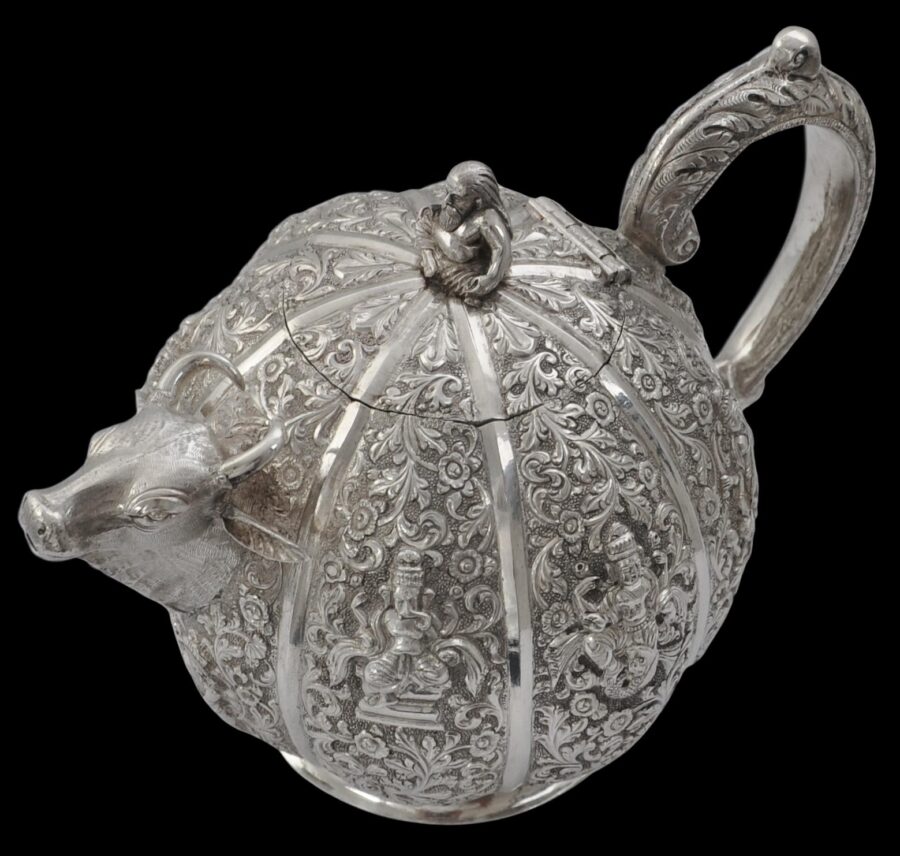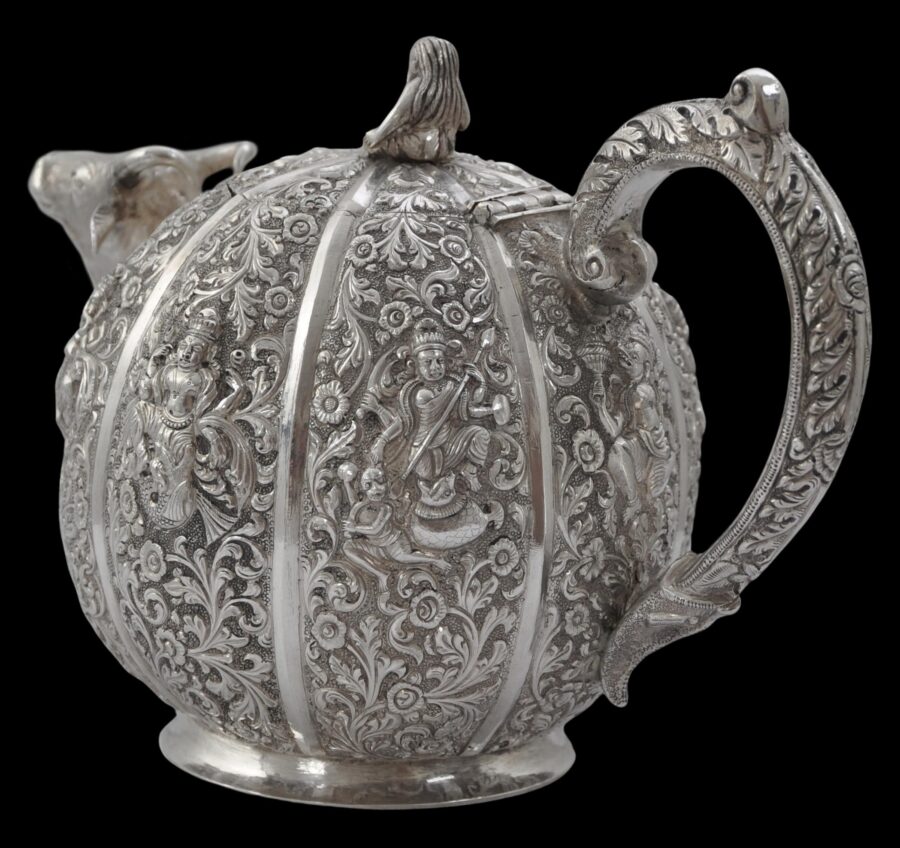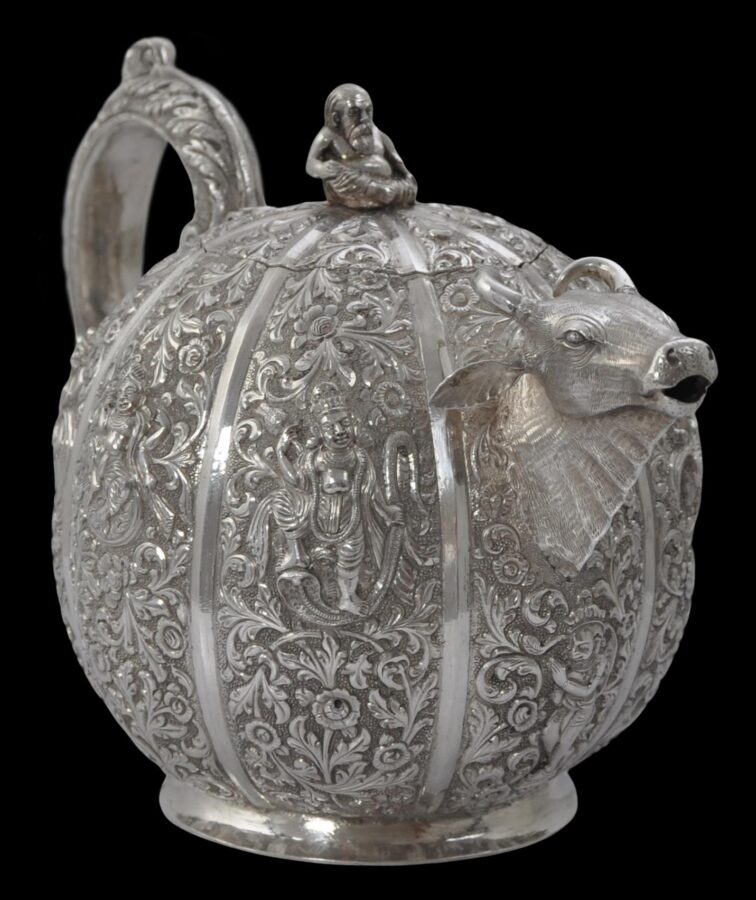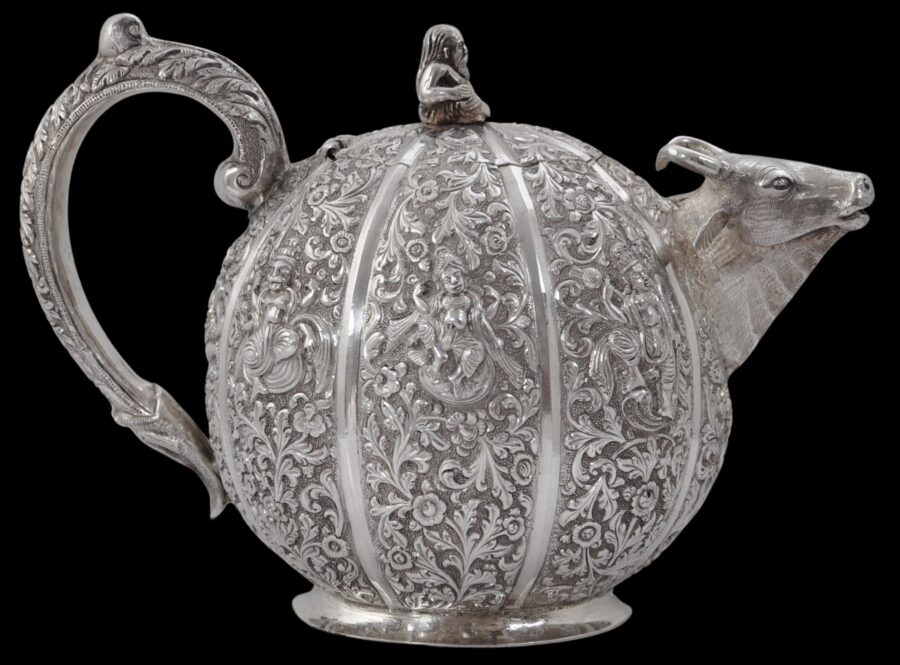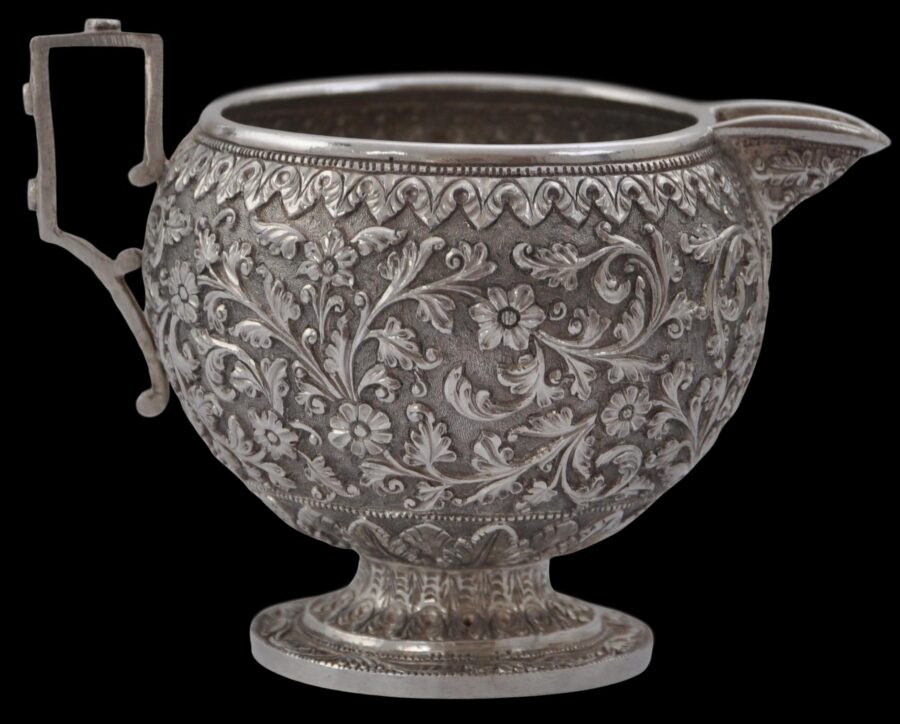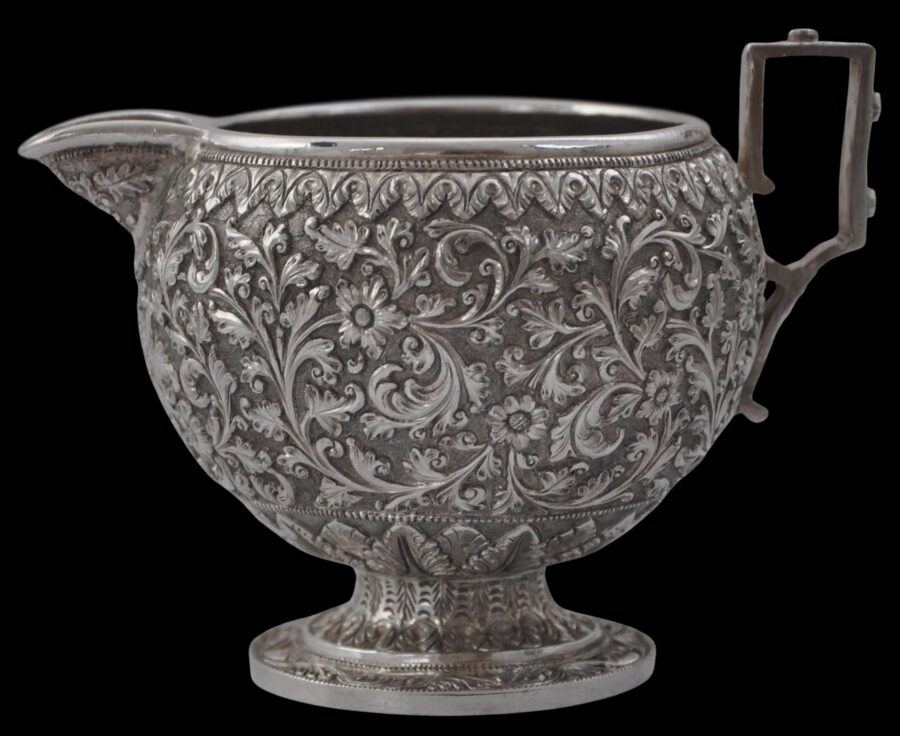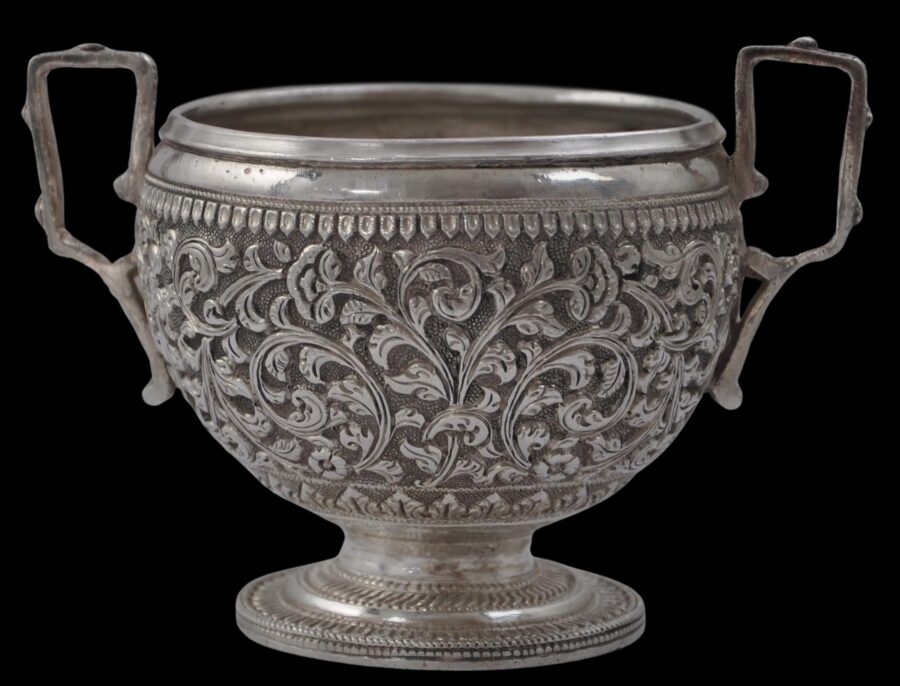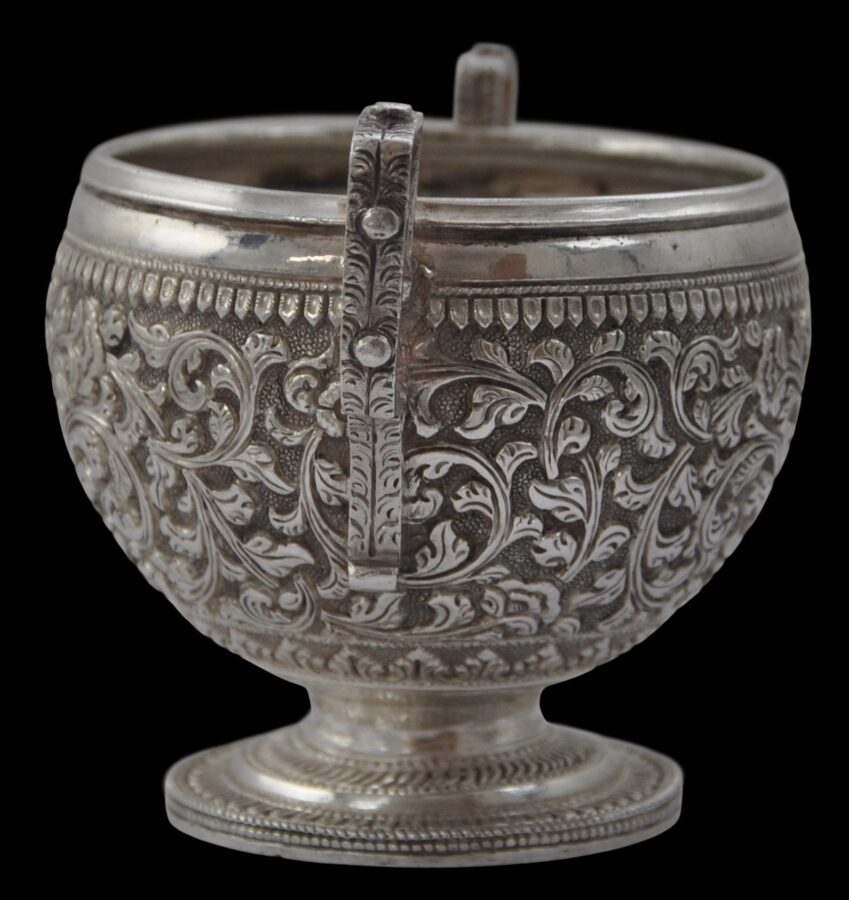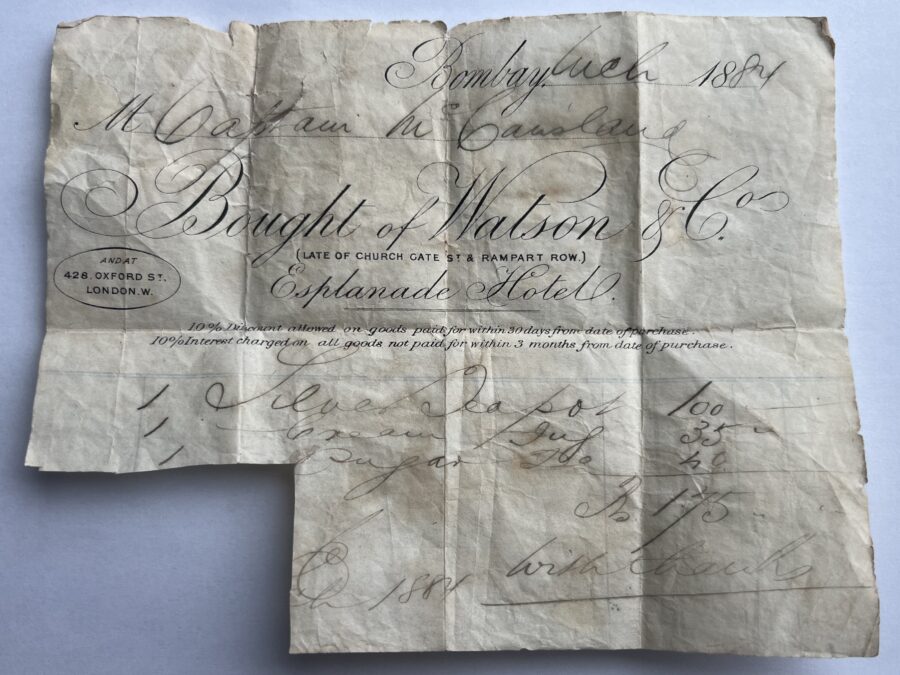This is a very unusual colonial Indian tea set of the likes that we have not seen before. It was purchased in Bombay in 1884.
It comprises a spherical teapot with a hinged lid and a spout in the form of a finely modelled cow’s head, a sugar bowl and a creamer. The teapot lid has a finial in the form of a solid-silver, cast seated holy man with long hair.
The set was retailed in Bombay, and probably was made there. As Wilkinson (1999, p. 21) observes, there were many retailers of Indian silver in Bombay and many makers drawn from across India and even from beyond, and as a consequence, and unlike other silversmithing centres, the city did not develop a distinctive silver style but instead Bombay-made items often are syncretic in nature – a blend of regional styles and influences. The dominant style of decoration used by Bombay silversmiths was that of Kutch and Karachi (which itself had a style that was a derivative of the Kutch style.)
The set here is precisely this syncretic style – the overall dense floral and leaf scrollwork is Kutch, the vertical ribbing on the tea pot is more Karachi, and the rather idiosyncratic inclusion of Hindu-like deity figures around the teapot harks to silverwork from Madras, in India’s south.
The cow-head spout on the teapot is reminiscent of those sometimes seen on a ritual Hindu goumukhi container. (See here a spectacular vessel sold by us and inspired by such goumukhi by the Kutch silversmith Oomersi Mawji.)
The tea set is accompanied by remnants of the original purchase invoice stating that each of the three pieces was purchased in 1884 in Bombay from Watson & Co of the Esplanade Hotel. The Hotel has the distinction of being India’s oldest surviving cast iron building. The cast and wrought iron structure of the building was prefabricated in England, and shipped to India, where it was constructed in the late 1860s. Notable guests included the American writer Mark Twain.
Wilkinson (1999, p. 23) lists Watson & Co as one of the six leading retailers and makers of high-quality Indian silver in the later 19th century.
Interestingly, the sales docket for the tea set lists each piece separately with a separate price, suggesting that each piece was available individually, allowing the customer to make up his or her own set. This explains why each piece here clearly is by the same maker and broadly similar, but perhaps not as cohesive as later sets.
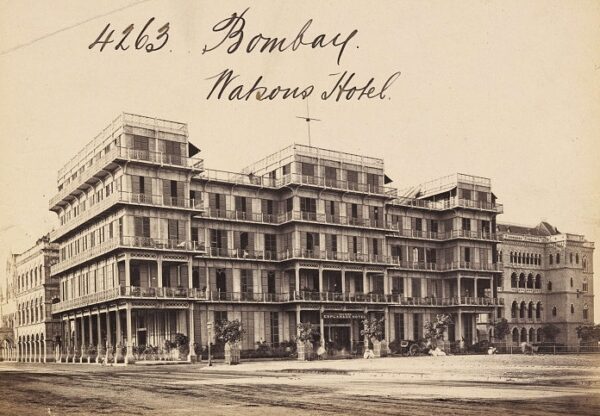
Above: Watson’s Esplanade Hotel, Bombay, late 19th century.
References
Dehejia, V., Delight in Design: Indian Silver for the Raj, Mapin, 2008.
Wilkinson, W.R.T., Indian Silver 1858-1947, 1999.


